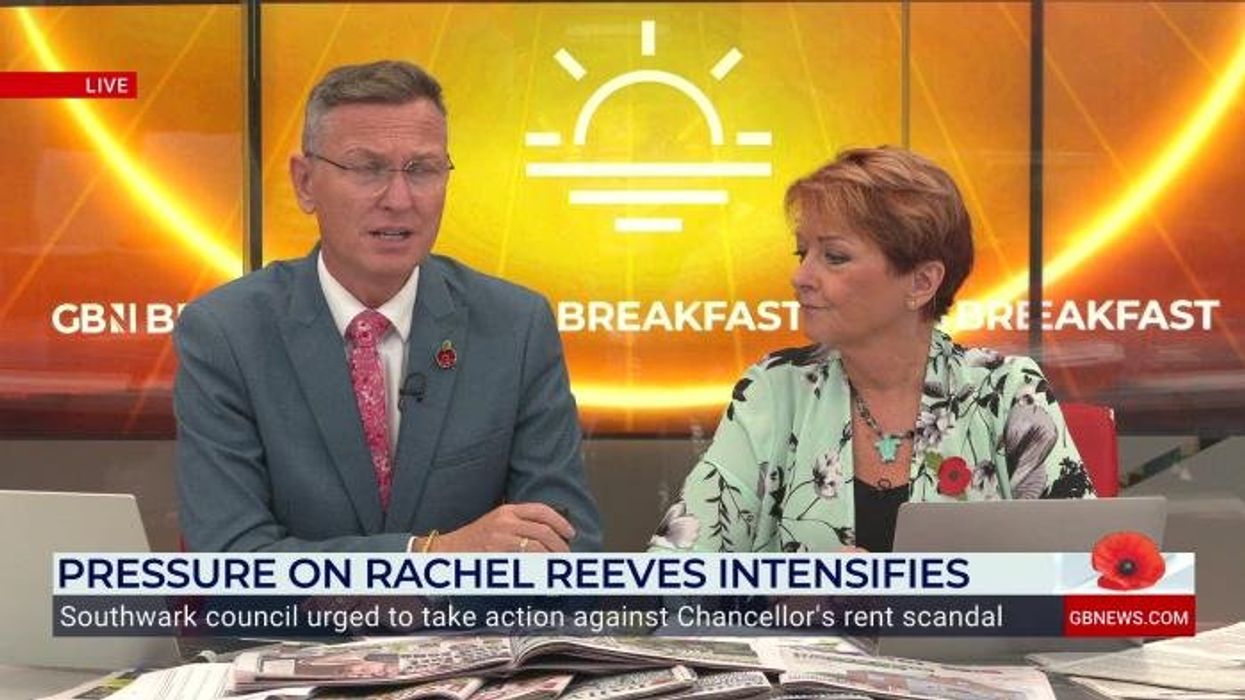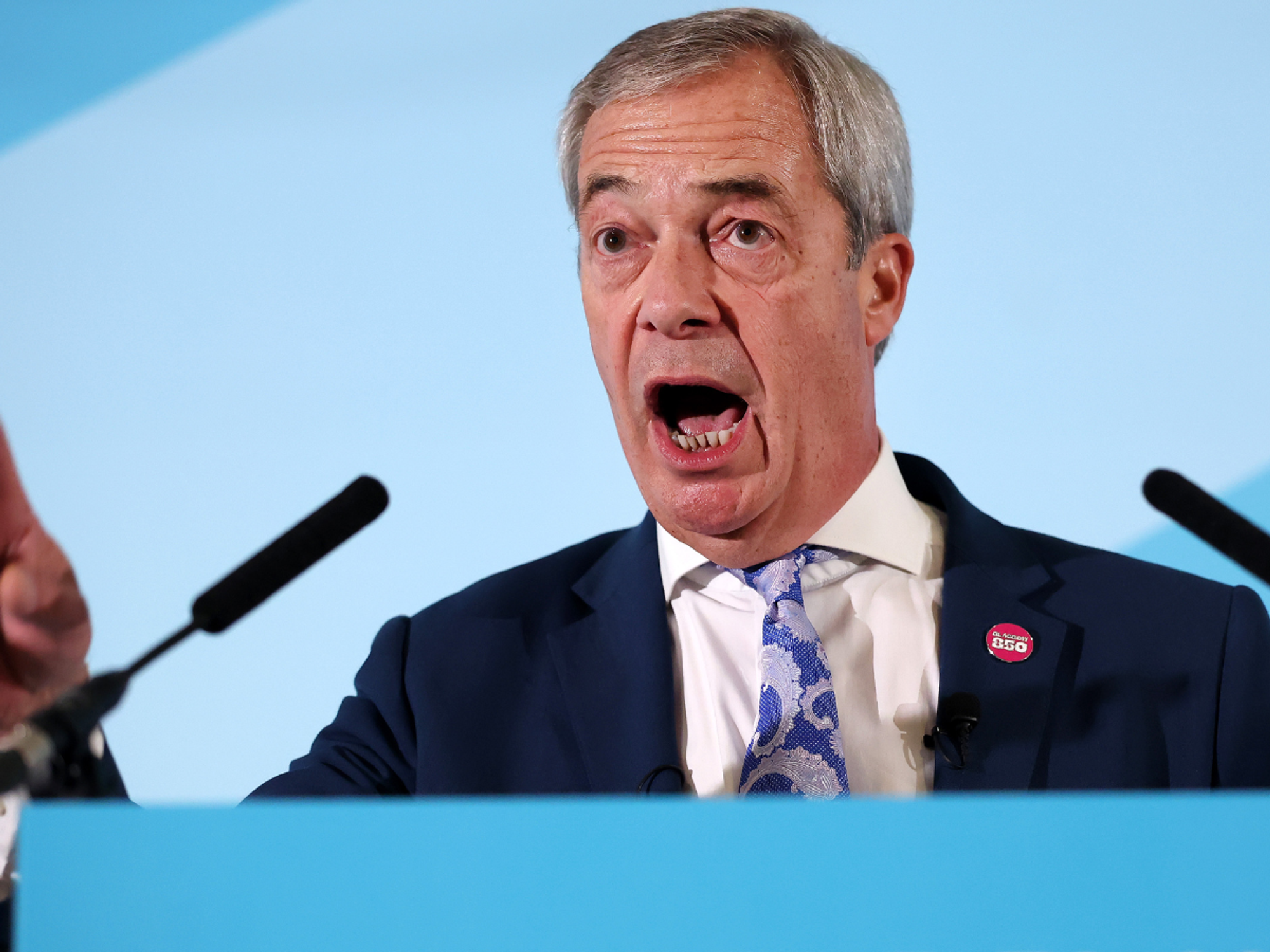With all eyes on Reform, another insurgency just threatened Labour with extinction - Rakib Ehsan
This is a major headache for Keir Starmer, writes independent researcher, writer and commentator Rakib Ehsan
Don't Miss
Most Read
Trending on GB News
There is no doubt that we have entered uncharted territory in British politics, with the traditional two parties being swept away by insurgents on both the Left and Right.
Understandably, much of the focus has been on the spectacular rise of Nigel Farage’s Reform UK, which is routinely leading in the national voting intention polls and gained outright control of ten councils following the last English local elections.
There has also been a surge in support for the Green Party under the leadership of Zack Polanski. But what has gone somewhat under the radar is the progress being made by Muslim independent candidates where a significant number of co-religious voters live.
Yesterday in the Lancastrian town of Burnley, two local by-elections took place, with Muslim independent candidates Musharaf Parvez and Shiraz Ahmed gaining both seats - Queensgate and Lanehead - from Labour.
In Queensgate ward, Parvez comfortably defeated Reform UK’s Victoria Fletcher by 679 to 240 votes (with Labour’s Dylan Rea winning just 133 votes). According to existing population data, Muslims are the largest religious group in Queensgate (outnumbering Christians and those of no religion).
Meanwhile, in Lanehead ward, Ahmed polled 706 votes, with his nearest challenger being Reform UK’s Gavin Theaker (who received 510 votes). Labour’s Millie Towers received only 262 votes.
These wins build on the successes of independent Muslim candidates in the town in last May’s Lancashire County Council elections.
But to refer to these Muslim independent candidates simply as ‘pro-Palestine’ misses the broader picture. There is no denying that they owe much of their electoral success to British Muslim disillusionment over the Westminster political establishment’s positioning on Israel-Palestine – especially the leadership of the Labour Party they usually vote for.
It would not be an uncommon view within British Muslim communities that the Netanyahu government in Israel has carried out a genocide in Gaza and has accelerated the expansion of illegal militarised settlements in the West Bank.
 With all eyes on Reform, another insurgency just threatened Labour with extinction - Rakib Ehsan |
With all eyes on Reform, another insurgency just threatened Labour with extinction - Rakib Ehsan | Getty Images
However, there is also a prevailing feeling among British Muslims of being ‘left-behind’ by their natural party of Labour – both in an economic and cultural sense.
Much like deprived, white-British, working-class communities, there are traditionally Labour-controlled areas with high Muslim populations that suffer from underperforming public services, low housing quality, and a lack of well-paid jobs with a chance for progression.
It is worth noting that Burnley has one of the highest concentrations of highly deprived neighbourhoods in the country. While 40 per cent of Burnley’s neighbourhoods are ‘highly deprived’, the overall figure for England is 10 per cent.
While white-British, working-class communities may be relatively liberal, socially conservative British Muslims tend to be more fiercely at odds with social liberalism in the Labour Party – especially over matters such as assisted dying, abortion, same-sex marriage, and trans rights.
Whether it is economics, social policy or Palestine, many British Muslims simply cannot relate to Labour, which is precisely why so many are withdrawing their support for the party in their droves.
All of this is a major headache for Keir Starmer. His party is haemorrhaging support on three fronts: Reform UK (primarily among white-British working-class voters in the provinces), the Green Party (especially among younger radical progressives in metropolitan centres and university towns), and the Muslim independents (with co-religious voters feeling neglected over matters of domestic and foreign policy).
The current-day Labour Party – an elitist outfit lacking any kind of philosophical grounding and programmatic identity – is being swept aside by the rising tides of British protectionist nationalism, Islamic social conservatism, and radical cultural progressivism.
The era of ‘catch-all centrism’ is coming to an end in British politics, with more voters wanting daring electoral options which challenge the status quo. Politicians looking to anchor themselves at an imagined sensible centre risk being defeated at the ballot box by bolder insurgents with genuine conviction.
While mass Muslim political mobilisation behind independent candidates may not be viewed as a positive development for British democracy, it is here to stay.
As it stands, the polls suggest that we are on course to see Reform UK become the largest party in the House of Commons – possibly with a parliamentary majority.
But in an era of electoral volatility and fraying loyalties to the legacy parties, it is not beyond the realms of possibility that a future general election results in a much-fragmented hung parliament – one that could lead to a left-leaning, multi-party coalition which relies on the support of an Independent Alliance-style bloc of politicians elected by constituencies with sizeable British Muslim populations.
Whichever way one looks at it, we can all agree that the British political landscape is shifting rapidly before our very eyes.
Our Standards: The GB News Editorial Charter
More From GB News











